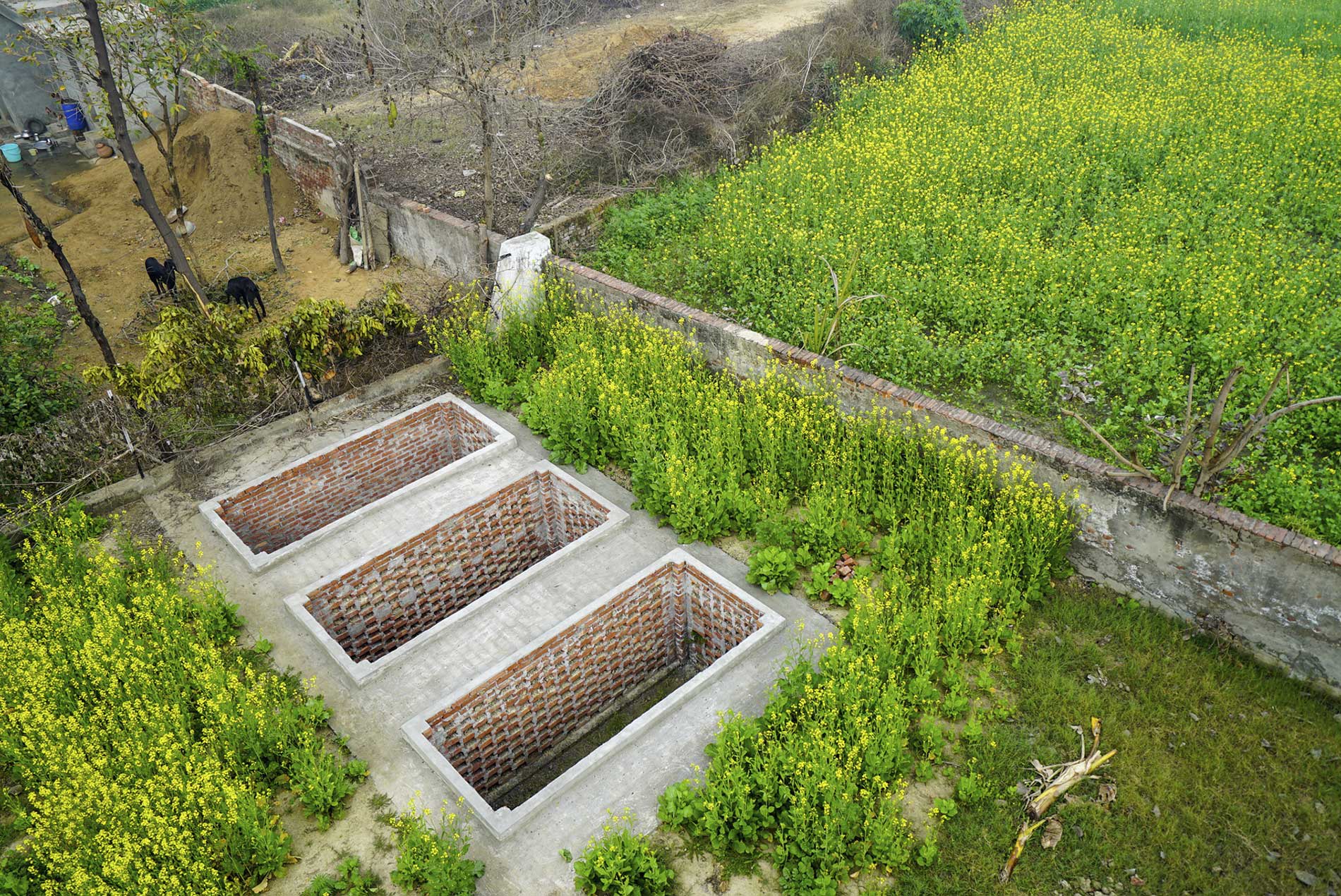Two years ago, Santosh and her family were ready to move from their home in Dau Majra, a village in Ludhiana district. They could not bear the stench emanating from a garbage dump behind their house. Every time they cleaned it up, garbage would recollect in a heap in a few days. “The problem was that there was no system for people to dispose of their waste,” she says. “People would sneak out in the dark and dump it when I could not prevent it.”
Most people dealt with trash in two ways: burning and dumping. They burned waste in the open, or dumped it “in places no one looks at so it doesn’t bother anyone,” as one villager said. That included people’s backyards, among piles of rocks, or, most commonly, into ponds and rivers.
Floodwaters swept more trash from banks into the rivers, further polluting the water bodies.
Early this year, Roundglass Foundation introduced waste management to Dau Majra, and things started to change.
“Most of the inhabitants had no knowledge of the negative impact trash had on their lives,” says Rajneesh Kumar the man driving the transformation for Roundglass Foundation. Initially they told him, “We have plenty of good air here, so the burning doesn’t affect it.” One villager claimed,“The trash just goes away, and the air goes back to normal.”
Through workshops organized by the team, villagers learned of the threats posed by improperly disposed trash. They were taught about the toxic chemicals and carcinogens released into the environment by burning plastic; about the pollutants that contaminate soil, water and air; and about the diseases that are caused by rotting garbage heaps.
Once aware of their responsibility to their own surroundings, Dau Majra’s population of 790 adopted the RoundGlass Waste Management system. Today they segregate 80 per cent of garbage at source, creating employment for a door-to-door waste collector. Nearly 14 tons of manure is produced every month, and revenues are being generated through composting and recycling.
Santosh is happy she stayed back. The garbage piles have been removed, and collection happens at the composting site on the outskirts of the village. “I feel like I live in a new place,” she says.
Next on the village agenda: improve its environmental credentials by eliminating the use of plastic. The plan involves working with schools and youth groups to change behavior, creating awareness of the hazardous effects of plastic on the environment, and arranging events for disposal of discarded plastic.
